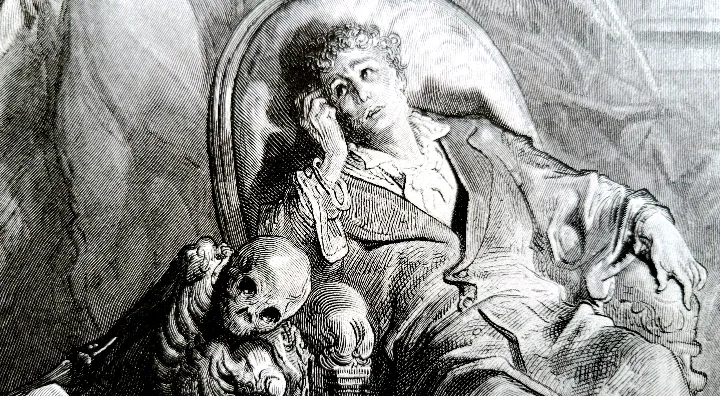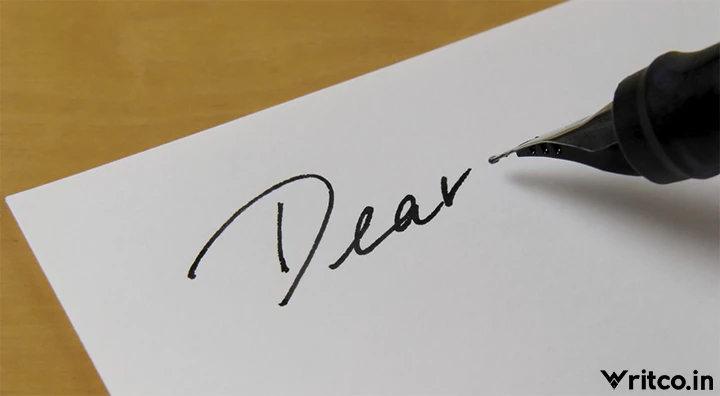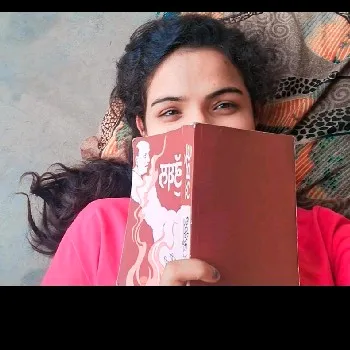Conscience of a King - V
A long chapter (apologies) in which we see our prince betrayed by an oily vassal, suffer the rage of his father the king for the theft of the previously mentioned wine, and, lastly, fall hopelessly in love while skulking in a scullery.
***
What then remains to fire this youngin’s heart?
(Before our reader/writer ships must part)
I think you know yet wonder at the way
That love could intersect our wayward stray.
It was by chance as such things often are,
And as I shall explain: he went too far
When sourcing sauce for ‘ventures of the vine,
Incurring wrath from one who’s love of wine
Outweighs the love one bears for mortal kin
(For drinkers can conceive no greater sin
Than theft of blood more blessed than that of Christ’s
(For little cares the drunk for sacrifice)).
Thus with the risk to gain a royal throttle,
He’d stole a cellar dwelling royal bottle,
But seen was he by one who told the king.
This spy was but a lowly, oily thing,
A creature we shall meet again in time,
(As jealousy begat a further crime)
For now, however, dripping menial slime
He spoke with tongue abject and full of tact,
“My Liege, I must inform you of an act,
Egregious, yet it pains me to deploy
Such words in service ‘gainst your pretty boy,
Who should be given leave to error make
From time to time, yet should his heart forsake
Your own by disrespect it would so grieve
Myself that here, untouched, I may not leave
This bitter subject lest a great division
Rend my masters by filial fission.
Thus do I humbly state that theft afoot
Has brought me to unfurl my tongue once mute
On any matter critical of youth,
For better is the mind when armed with truth
Even when thoughts may bring thee lancing pain
And disappointed daggers of disdain
Upon a son whose prodigy was famed
Before this prodigality was named.”
“What say you beast?” The king responded wroth,
“Speak plainly.” So it did with gleeful wrath,
“Your son has smuggled forth the royal wine
And gone up to his room with which to dine.”
The king was set to rage by what he heard;
His body set to action by the word
Of wine (of all the lexicon the best),
Which thinking lost had set within his breast
A smoulder for revenge on any man
Be they of his blood or of his clan.
Thus, as the bottles bottom did he spy,
And looked upon the words he’d writ so dry,
Our prince heard of a roar and made to fly -
‘T was like when from the minotaur would flee
Those sacrificial youths sent cross the sea
To craggy Crete to labyrinth brave alone,
Suffering for the sins of Minos’ throne.
With view to gore the bovic king made chase,
(Albeit huffed from years of idle waste)
And though his mantle was as oft adorn
Those mighty lords when to their throne are sworn,
Making a king as though a fish on land,
It mattered not as long as he could stand
And let momentum move his royal freight
With walls providing succour for his weight.
Thus was the sight our prince was swept before:
The flowing tide of a’royal robèd boar.
Into the servant quarters made his way
Beseeching refuge ‘till the light of day
And found him there an absent scullery
Where dishes lounged bestride their cutlery.
He thought him lone but soon was set aright
As there he spied a candle burning bright,
Which lit upon a face of fair delight;
A maid of tender years, close his own
Of rugged beauty, stout and graceful grown.
Our youth though struck with love’s cruel malady
Could not forget his prime catastrophe
And dove beneath the table and implored
The maid to not engender his discord.
Before her acquiescence was ensured
The king burst through the door left unsecured.
In frantic haste he roared, “Where is that thief?”
To which the girl, demurely, answered brief,
“’Tis only I my liege, none else is here.”
At which the King departed with a sneer.
Our prince, in sweating glee, sprang forth to kiss
His maiden saviour in a fit of bliss -
A liberty you may wish to forgive
For though such liberties we oft misgive
When man has full advantage of his game
And suffers not the requisite of shame
Our prince is but a boy and off his face
Somehow allowing absence of disgrace.
The maiden (more a maid but not to split
Hairs on the class of those who’ll never sit
Enthroned beside a king) stepped back a pace
And sought, with coquetry, return to grace.
“My lord,“ she said, “I am not yours to take”
“Why not,” he said, “for you, my life, I’d stake.”
“You know not what you say, we are not paired,
And drink has made your judgement most impaired.”
“Were I a common man you’d not deny
So why against these princely arms do fly?”
“It is not done and would end bad for me;
For you but one more trifling memory.”
“O if this heart could soon forget your face
It would be held forever in disgrace.”
“Suffer me not a fool! You cannot say
These words that ev’ry article betray.”
“The only rule is that which love intends,
And ‘gainst this love all edicts good pretends.”
And here the maiden was through words divorced
From chastity’s embrace, so long endorsed
And highly held yet in a moment dashed
When love’s encounter ‘pon her pate was crashed
Leaving a pious path no more extant,
And not to grim portents the reader grant
But love does not lead always to the bank
(As all our readers know but often blank).
This seems a perfect place to leave our youths
Until a later date for much fatigued in truth
These childish couplets make the amateur,
So lest this work should lapse into languor
I’ll leave them in this amorous estate
And later may reveal their further fate.
***
What then remains to fire this youngin’s heart?
(Before our reader/writer ships must part)
I think you know yet wonder at the way
That love could intersect our wayward stray.
It was by chance as such things often are,
And as I shall explain: he went too far
When sourcing sauce for ‘ventures of the vine,
Incurring wrath from one who’s love of wine
Outweighs the love one bears for mortal kin
(For drinkers can conceive no greater sin
Than theft of blood more blessed than that of Christ’s
(For little cares the drunk for sacrifice)).
Thus with the risk to gain a royal throttle,
He’d stole a cellar dwelling royal bottle,
But seen was he by one who told the king.
This spy was but a lowly, oily thing,
A creature we shall meet again in time,
(As jealousy begat a further crime)
For now, however, dripping menial slime
He spoke with tongue abject and full of tact,
“My Liege, I must inform you of an act,
Egregious, yet it pains me to deploy
Such words in service ‘gainst your pretty boy,
Who should be given leave to error make
From time to time, yet should his heart forsake
Your own by disrespect it would so grieve
Myself that here, untouched, I may not leave
This bitter subject lest a great division
Rend my masters by filial fission.
Thus do I humbly state that theft afoot
Has brought me to unfurl my tongue once mute
On any matter critical of youth,
For better is the mind when armed with truth
Even when thoughts may bring thee lancing pain
And disappointed daggers of disdain
Upon a son whose prodigy was famed
Before this prodigality was named.”
“What say you beast?” The king responded wroth,
“Speak plainly.” So it did with gleeful wrath,
“Your son has smuggled forth the royal wine
And gone up to his room with which to dine.”
The king was set to rage by what he heard;
His body set to action by the word
Of wine (of all the lexicon the best),
Which thinking lost had set within his breast
A smoulder for revenge on any man
Be they of his blood or of his clan.
Thus, as the bottles bottom did he spy,
And looked upon the words he’d writ so dry,
Our prince heard of a roar and made to fly -
‘T was like when from the minotaur would flee
Those sacrificial youths sent cross the sea
To craggy Crete to labyrinth brave alone,
Suffering for the sins of Minos’ throne.
With view to gore the bovic king made chase,
(Albeit huffed from years of idle waste)
And though his mantle was as oft adorn
Those mighty lords when to their throne are sworn,
Making a king as though a fish on land,
It mattered not as long as he could stand
And let momentum move his royal freight
With walls providing succour for his weight.
Thus was the sight our prince was swept before:
The flowing tide of a’royal robèd boar.
Into the servant quarters made his way
Beseeching refuge ‘till the light of day
And found him there an absent scullery
Where dishes lounged bestride their cutlery.
He thought him lone but soon was set aright
As there he spied a candle burning bright,
Which lit upon a face of fair delight;
A maid of tender years, close his own
Of rugged beauty, stout and graceful grown.
Our youth though struck with love’s cruel malady
Could not forget his prime catastrophe
And dove beneath the table and implored
The maid to not engender his discord.
Before her acquiescence was ensured
The king burst through the door left unsecured.
In frantic haste he roared, “Where is that thief?”
To which the girl, demurely, answered brief,
“’Tis only I my liege, none else is here.”
At which the King departed with a sneer.
Our prince, in sweating glee, sprang forth to kiss
His maiden saviour in a fit of bliss -
A liberty you may wish to forgive
For though such liberties we oft misgive
When man has full advantage of his game
And suffers not the requisite of shame
Our prince is but a boy and off his face
Somehow allowing absence of disgrace.
The maiden (more a maid but not to split
Hairs on the class of those who’ll never sit
Enthroned beside a king) stepped back a pace
And sought, with coquetry, return to grace.
“My lord,“ she said, “I am not yours to take”
“Why not,” he said, “for you, my life, I’d stake.”
“You know not what you say, we are not paired,
And drink has made your judgement most impaired.”
“Were I a common man you’d not deny
So why against these princely arms do fly?”
“It is not done and would end bad for me;
For you but one more trifling memory.”
“O if this heart could soon forget your face
It would be held forever in disgrace.”
“Suffer me not a fool! You cannot say
These words that ev’ry article betray.”
“The only rule is that which love intends,
And ‘gainst this love all edicts good pretends.”
And here the maiden was through words divorced
From chastity’s embrace, so long endorsed
And highly held yet in a moment dashed
When love’s encounter ‘pon her pate was crashed
Leaving a pious path no more extant,
And not to grim portents the reader grant
But love does not lead always to the bank
(As all our readers know but often blank).
This seems a perfect place to leave our youths
Until a later date for much fatigued in truth
These childish couplets make the amateur,
So lest this work should lapse into languor
I’ll leave them in this amorous estate
And later may reveal their further fate.
Related Stories













